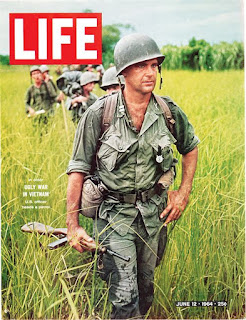The principles of the theory relate to the tiniest of atomic particles, which are the building blocks of our vast universe. And, of course, us.
These particles act in mysterious and puzzling ways. They're unpredictable beyond certain thresholds. In fact, wildly so. And most remarkably, they behave in ways that defy the laws of space and time.
The mathematical Michelangelo of space-time theory himself, Albert Einstein, referred to this quirky Quantum behavior as "spooky action at a distance." Einstein, who knew more than just about anyone about the math of physics, was faced with the reality of something beyond space and time. To him, it was probably frightening.
Frightening that certain sub-atomic particles could be connected to other, separate, atomic particles over vast distances - even galaxies and universes. Even over time. Outside of time. Outside of space. They were connected, "entangled" together regardless of where - or when - they existed.
Spooky.

In 1994, Greg Egan's wrote Permutation City. It included the concept of multiverses and was cited in a 2003 Scientific American article on their existence. That they exist is a widely-accepted construct among physicists. In the novel, Egan reflects on quantum-connected particles:
"Imagine a universe entirely without structure, without shape, without connections. A cloud of microscopic events, like fragments of space-time … except that there is no space or time. ... Just the values of the fundamental particle fields, just a handful of numbers. Now, take away all notions of position, arrangement, order, and what’s left? A cloud of random numbers.
But if the pattern that is me could pick itself out from all the other events taking place on this planet, why shouldn’t the pattern we think of as ‘the universe’ assemble itself, find itself, in exactly the same way? If I can piece together my own coherent space and time from data scattered so widely that it might as well be part of some giant cloud of random numbers, then what makes you think that you’re not doing the very same thing?”
Today's physicists and mathematicians are split into different groups; some seeking to understand the multiverses and quantum connections; others dedicated to the math and computing and evolving quantum technologies.
Of that, I care not. To me, Egan's words say it well. The conclusion is that we are connected and constructed outside of space and time. The reality of what we are, who we are, is especially found in our conscious self, as Egan himself pens in his book. Across multiverses, then, we are connected to ourselves. We are that same person.
Ayahuasca travelers say they have journeyed to these other universes. They come back and find it hard to explain the complexities of what they've seen. Timothy Leary tried to explain it, although only through observation - not through mathematics.
In The Psychedelic Experience, (based on the Tibetan Book of the Dead), Leary wrote:
"the experience is a journey to new realms of consciousness. ... its characteristic features are the transcendence of verbal concepts, of space-time dimensions, and of the ego or identity..."
And so, this seems like a good way to explain why life feels the way it does sometimes.
Why, on a sunny June afternoon, driving with my college girlfriend and future wife, I remember looking at her in the passenger seat. Her window open, hair blowing in the summer breeze. I stared at her face and the streaming sunlight illuminating the soft hair on her forearms.
She noticed, turned and said, "What?"
How could I explain that I felt so happy and yet so lonely and incomplete? Like I already knew the distant chapters of our story, already connected. Already sweet, already sad.
I also recall a winter evening in 1988, kneeling against the tub, giving my first child a bath, amidst laughter and happiness and soap bubbles. Blissful, yes. But inexplicably half-full; a kind of loneliness for others yet to arrrive - but who couldn't share this happiness with us yet. A knowing that, for them, we'd have to wait.
Then, I didn't know of that math that already connected them to me here - and in other places, outside of space and time. I just knew how I felt.
I've hesitated to write this story; worried over its darkness and sadness.
Over the years, I would tell my closest friend, over and over, even in our happiest moments, that I missed her. Even though she was with me. And I couldn't explain why. It was as if she really wasn't there. Or that I knew she wouldn't be. Or perhaps I sensed that in our connected other places, she wasn't there; that our happiness and innocence had aged and ended.

And then there's this. In my life, I have twice sensed a shift, a metaphysical movement to a different place. A sorrowful, lonely knowing things had changed. Things were the same - and not the same.
This isn't craziness or sadness. People who know me, well, they know I think about these things.
And so, thanks to Heisenberg and his spooky theory, I wonder if, when our world changes - when it ends - if it really doesn't end. We persist, we shift, we reassemble. Or we simply reconnect - outside of space and time - to one of our other quantum selves.
Or we go to heaven.
I hope, eventually, it's heaven.
Especially if we can watch Quantum things being created on clouds.





















